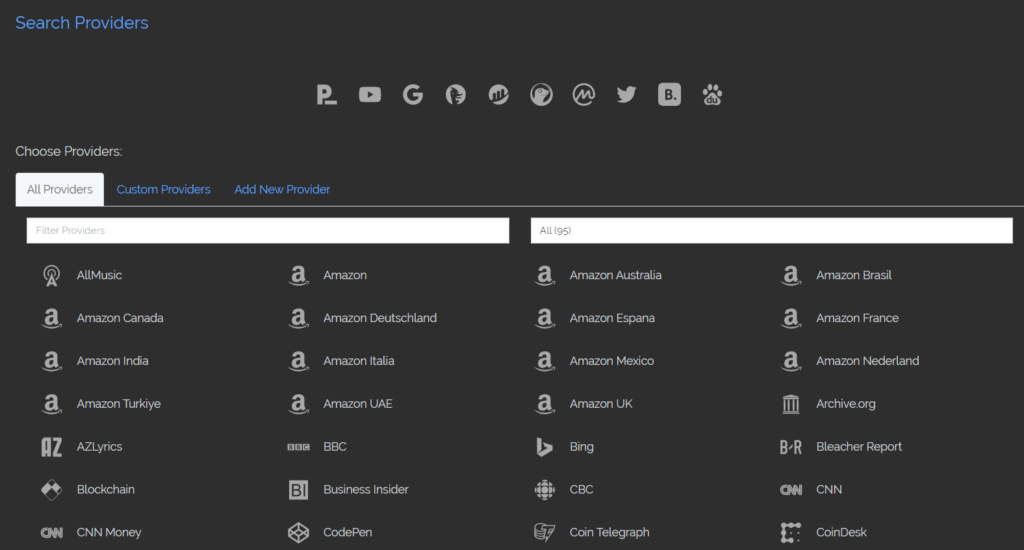Looking for information on the internet has become a routine task for many of us. But have you ever wondered if there’s an alternative to Google that offers better results? In today’s post, we’ll be exploring Presearch – a decentralized search engine that claims to provide unbiased and reliable results. We’ll compare it with the most popular search engine in the world – Google, and see which one comes out on top.

So buckle up and get ready to discover some surprising differences between these two giants!
Introduction/Background of Presearch and Google
Presearch is a new search engine that is quickly gaining popularity due to its unique approach to search. While Google has become the default search engine for most people, Presearch is different in that it allows users to customize their search experience. Additionally, Presearch is built on the blockchain, which makes it more secure and transparent than other centralized search engines.

Presearch was founded in 2017 by Colin Pape and Duncan Cameron. The company is based in Toronto, Canada. Pape is also the founder of OpenBazaar, an open-source marketplace that allows for peer-to-peer transactions without the need for a central authority.
One of the key features of Presearch is its use of community-generated “nodes.” These nodes are essentially like mini-search engines within the Presearch platform. They allow users to customize their searches by weighing results from different sources. For example, a user could choose to see more results from Wikipedia when they perform a search on Presearch than they would on Google.
Nodes are created and maintained by the community. Anyone can create a node, and node creators are rewarded with PRE tokens for their contributions. This incentivizes people to create high-quality nodes that offer relevant and accurate results.
Google, on the other hand, is a centralized search engine that relies on algorithms to provide results. While Google’s algorithms are very good at returning relevant results, they don’t offer the same level of customization as Presearch does
What are the differences between Presearch and Google?
Presearch is an open-source decentralized search engine that rewards community members with Presearch Tokens for their usage, contribution, and engagement. Google is a for-profit corporation owned by Alphabet Inc. that generates revenue primarily from advertising.

Presearch is designed to be more transparent and accountable than Google, which has been criticized for its lack of transparency around how it ranks search results. Presearch allows users to directly influence the ranking of results via a decentralized voting system. Google does not allow users to directly influence the ranking of results.
Presearch returns results from multiple sources, including major search engines like Google, Bing, and Yahoo!, as well as smaller niche search engines. This allows users to get a more comprehensive view of the information available on the web. Google only returns results from its own index.
Presearch is focused on delivering relevant and unbiased results, while Google has been accused of biasing its search results in favor of its own products and services (such as YouTube, Google Maps, etc.).
Advantages and Disadvantages of Presearch vs Google
Presearch and Google are the two most popular search engines available today. But which one offers better results? Let’s take a look at the advantages and disadvantages of each to help you decide.
Advantages of Presearch:
- You can customize your results.
- You can filter out sponsored results.
- Results are displayed in order of relevance, not popularity.
- You can see how many people have searched for a particular term.
- You can view related searches to find other relevant information.
- You can access advanced search features, such as Boolean operators.
- The interface is clean and easy to use.
- And lastly… Presearch is powered by the community, so it’s constantly improving!
Disadvantages of Presearch:
- It’s a newer search engine, so there’s not as much data available yet.
- The search results aren’t as accurate as Google’s yet – but they’re getting there!
- There are still some kinks that need to be worked out, such as with the filtering options.
- It doesn’t offer some of the same features as Google, such as an image or video search…However, many of these features are in development and will be added soon!
Overall, Presearch has great potential! While it may not be quite at the level
User Experience with Presearch vs Google
Presearch is a new search engine that is quickly gaining popularity due to its innovative approach to search. While Google still holds the lion’s share of the search engine market, Presearch is quickly gaining ground with users who are looking for an alternative to the dominant player. So, which one offers better results?
Presearch is designed to give users more control over their search experience. With Presearch, you can customize your searches by adding filters and operators to get more specific results. You can also choose which sources you want to search, including popular ones like Wikipedia and DuckDuckGo. This makes Presearch a great option for those who want more control over their search results.

Google, on the other hand, relies on algorithms to deliver results. This means that you don’t have as much control over your search experience. However, Google’s algorithms are constantly evolving, so you can expect that your results will continue to improve over time.
So, which one should you use? If you’re looking for more control over your search experience, Presearch is a great option. However, if you’re just looking for the best possible results, Google is still the king of search engines.
Comparative Analysis of Results from Presearch & Google
Presearch and Google are two of the most popular search engines available today. Both offer a variety of features and benefits that make them appealing to users. But which one is better?
To find out, we conducted a comparative analysis of the results from Presearch and Google. We looked at a number of factors, including search accuracy, relevancy of results, speed of results, and more. Here’s what we found:
Overall, Presearch offers more accurate and relevant results than Google. In addition, Presearch is faster than Google when it comes to delivering results. However, Google does have some advantages over Presearch. For example, Google offers more advanced features such as image search and video search.
At the end of the day, it’s up to you to decide which search engine is best for your needs. If you’re looking for the most accurate and relevant results, Presearch is the way to go. If you need more advanced features or simply prefer the look and feel of Google, then that’s the route you should take.
Conclusion
While Presearch and Google offer different approaches to web search, both offer high-quality results.
Ultimately, it is up to you as the user to decide which one best fits your needs. However, if you are looking for a more personalized experience with the ability to earn rewards for your searches, then Presearch is definitely worth considering over Google.
Regardless of which one you choose, we hope this comparison has been helpful in making an informed decision about which search engine offers better results for you.




